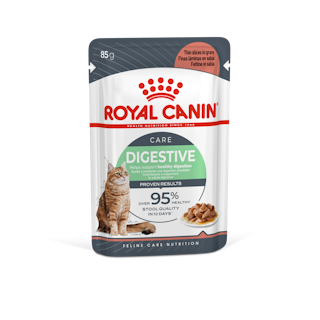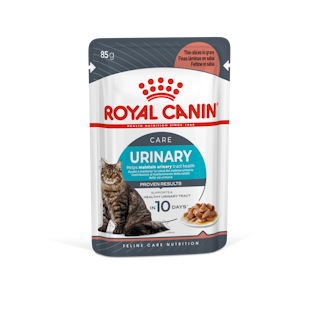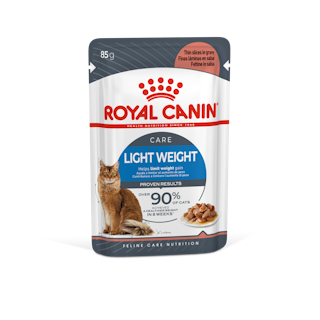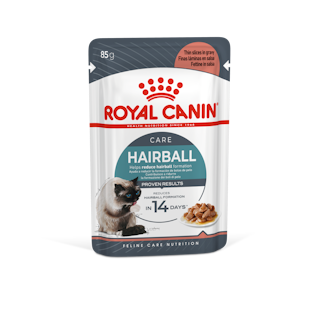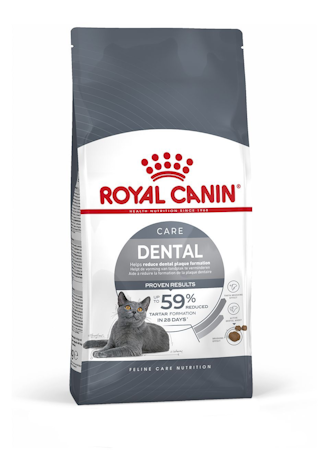Why Can't Cats Eat Dog Food?
First of all, the nutritional needs between cats and dogs are inherently different. Cats are obligate carnivores, requiring a higher proportion of protein in their diet. On the contrary, dogs are omnivores that are capable of obtaining the essential nutrients from various food sources. That is why feeding cats with dog diets may not be able to provide sufficient essential nutrients that cats need.
|
|
Cats diet |
Dogs diet |
|
Amount of protein |
Higher |
Lower |
|
Palatability |
Usually better[1] |
Normal |
Table 1: Comparing Cats and Dogs Diet [2]
The Essential Nutrients Cats Need That Are Not Found In Dogs Diet And Human Food
Cats are not able to synthesize the 'essential amino acids' that are crucial for their bodies on their own but to obtain it through a suitable diet. While these nutrients may not be found either in dog or human food, insufficient intake of essential nutrients can lead to nutritional imbalance, with the potential of triggering more serious health issues. Here are the crucial nutritional components for cats: [3]
1. Taurine:Cats cannot synthesize a sufficient amount of taurine on their own, so it must be obtained through their diets. Most of the dog food available in the market do not contain taurine, and a lack of taurine may lead to heart and vision problems in cats.
2. Arachidonic Acid:Cats cannot synthesize this fatty acid on their own while dogs can. So, dogs' diet seldom contains arachidonic acid, and a deficiency in arachidonic acid may result in liver and skin issues in cats.
3. Vitamin A:Cats also cannot synthesize Vitamin A on their own. Although dog food usually contains some vitamin A, it generally does not meet the optimal nutritional requirements for cats. Lack of vitamin A may lead to skin, muscle, and even night blindness issues in cats.
4. Nicotinic acid:Cats cannot produce nicotinic acid on their own, and animal tissues in cat food are basically the primary source of nicotinic acid supplementary for cats. Indeed, the nutrient composition in dog food cannot support the nutritional needs of cats.
Potential Risks Of Food Poisoning
Cat owners should also be mindful that some food that is safe for humans or dogs could be toxic to cats. The below foods are very common [4] but can pose a threat to the cat's life if consumed accidentally!
1. Alcohol:Alcohol can cause severe damage to a cat's liver and brain. Just a tablespoon of alcohol can potentially lead a cat into a coma, while amounts exceeding that can risk the cat's life.
2. Chocolate:Chocolate contains theobromine that is highly toxic to cats, it can result in central nervous system and heart problems.
3. Dairy Products:Adult cats are lactose intolerant, and consuming human dairy products especially milk, can cause vomiting and diarrhea. On the contrary, cats can consume dairy products that are specifically designed for them. ROYAL CANIN® Babycat milk has adapted similar lactose content to the queen’s milk and doesn’t contain starch (which cats can’t completely digest), to avoid upsetting their fragile baby digestive system.
4. Onions and Garlic:While a small portion may not cause serious problems, consuming a significant quantity of onions or garlic can lead to digestive problems. Regular ingestion may even result in anemia.
5. Raw Meat, Eggs, and Fish:Always consult a veterinarian before providing additional food to your feline friends. Improper feeding of the above items may trigger gastrointestinal and digestive problems.
Causing Obesity and Other Health Issues
In terms of nutritional value, human food contains excessive amounts of fat, sodium, and sugar, all of which are unhealthy for cats. Regular consumption of these foods may lead to obesity, heart disease, diabetes, and other health issues. [5]
1. Fat: Excessive fat intake can lead to obesity in cats, increasing the risk of health issues such as joint problems and heart disease.
2. Sodium: High sodium intake can lead to high blood pressure, posing threats to the cat's heart.
3. Sugar: Sugar is not a necessary nutrient for cats, and excessive sugar intake may lead to obesity and diabetes.
Feeding cats with dog food or human food can potentially harm their health as these foods usually do not meet their specific nutritional needs. We all want to provide the best diet for our beloved cats, hoping that they can stay with us longer in good health. To ensure their well-being, it's crucial to avoid feeding them dog food or human food. Besides, it is advisable to follow the three principles[6]: maintaining a balanced diet, feeding appropriate portions, and providing small but frequent meals. It is also important to adjust the diets depending on your cat’s health condition, striving to achieve their overall health and longevity.




